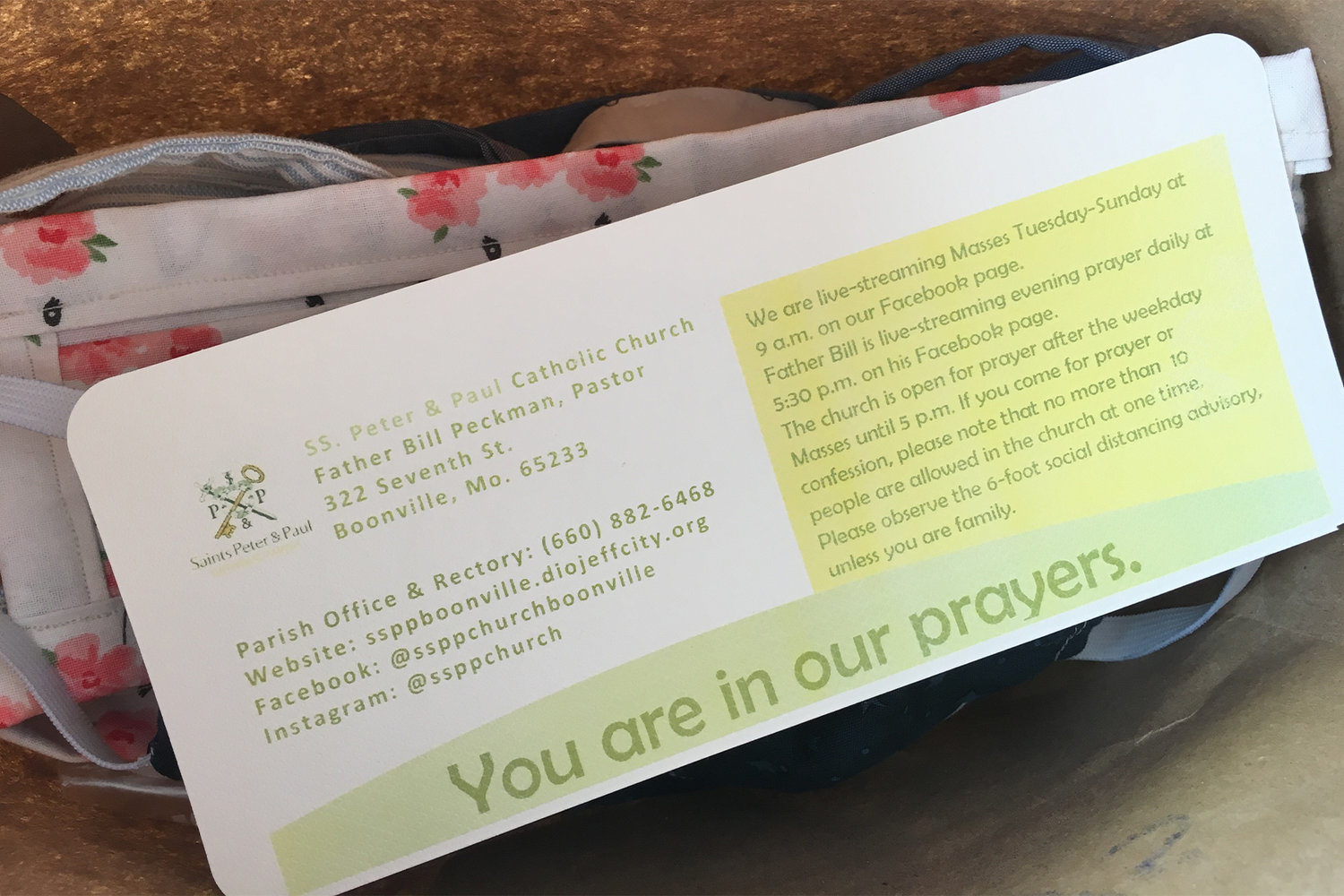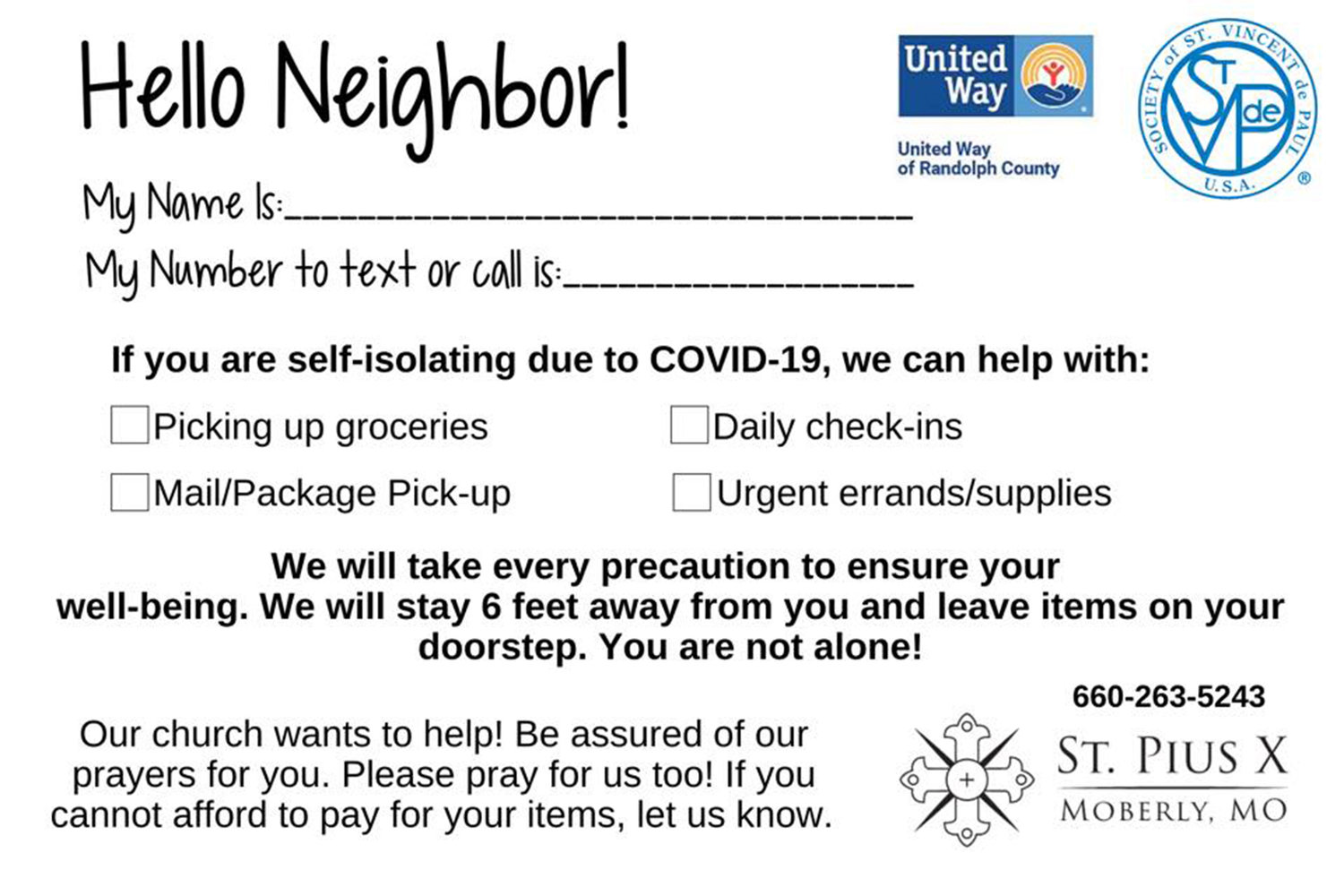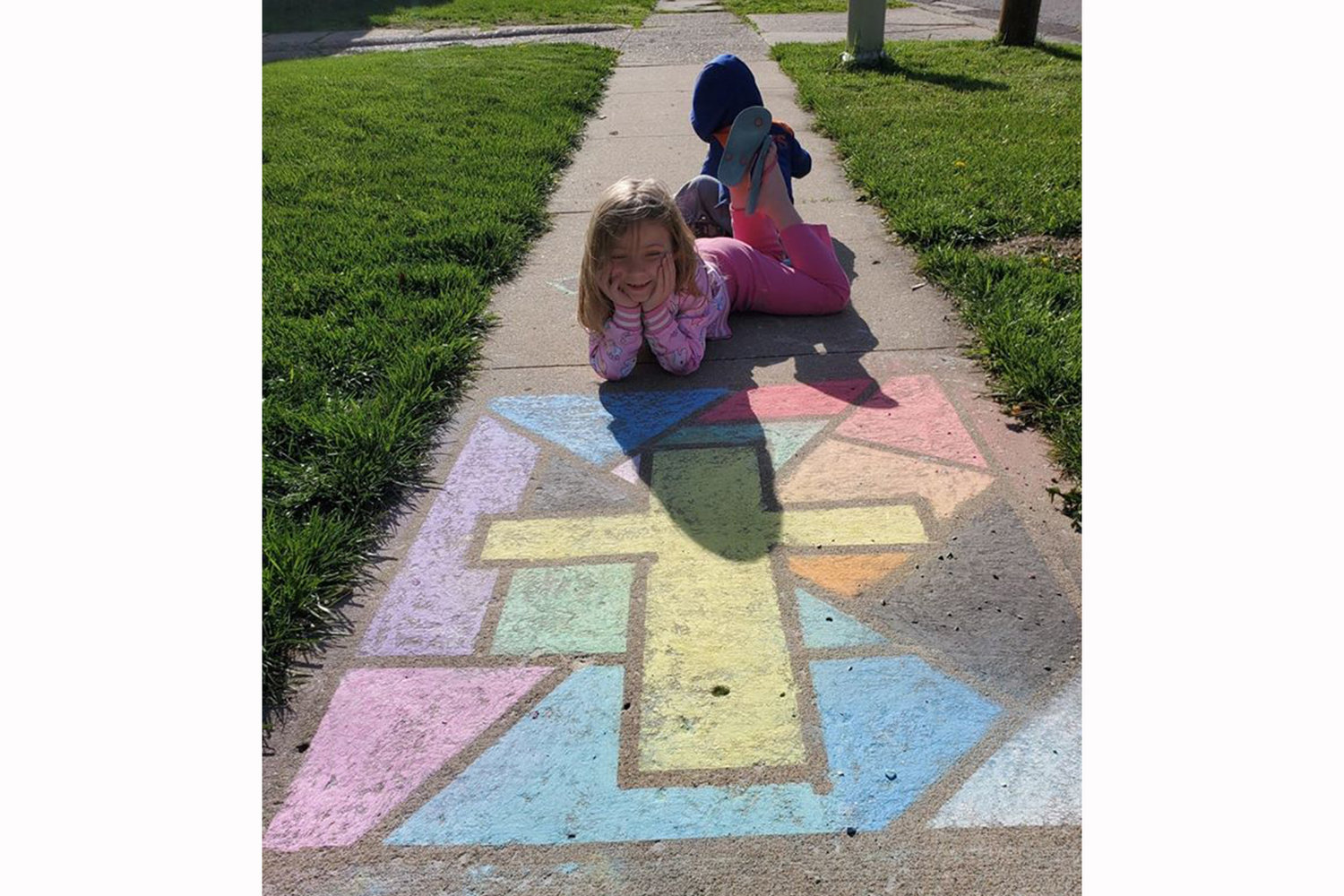Church’s response to COVID-19 must reflect timeless gesture of love at Last Supper

SCROLL THE ARROWS to see two more photos.
From the beginning, the Eucharist has been intrinsically tied to love-filled service.
So, too, have been these weeks leading up to Easter.
“The humblest tasks are noble because they are acts of love — love for one another,” said Bishop Emeritus John R. Gaydos on Holy Thursday, the day the Church celebrates Christ’s instituting of the Eucharist and the ministerial Priesthood.
Bishop Gaydos concelebrated the Mass of the Lord’s Supper with Bishop W. Shawn McKnight and preached the homily.
It was one of the most unusual Holy Thursday Masses in recent memory, with only a few people able to attend, due to a statewide stay-at-home order to slow the spread of the coronavirus.
“Our hunger for the Eucharist must also become more and more connected to our hunger to follow Jesus in loving service,” said Bishop Gaydos.
He asserted that the pandemic and its effects are helping Christ’s servants and followers see more clearly who they’re called to be.
“In fact, it’s going to be through imitating Jesus on the night before He died that we’re going to find a way out of this worldwide tragedy,” he said.
“The certain and inevitable way out is for all of us to get down on our knees, to serve others, whether we like them or not!” he said.
“That is what will heal our broken world.”
Love stories
Father Gregory Meystrik believes the pause created by the pandemic will have a positive effect in his parishes and beyond.
“I think we will be more community-oriented, a bit more aware of outreach and keeping in contact with the vulnerable, those who are homebound, people with compromised immune systems,” said Fr. Meystrik, pastor of St. Patrick parish in Rolla, Immaculate Conception parish in St. James and St. Anthony of Padua parish in Rosati.
The COVID-19 crisis is bringing forth thoughtful, strategic and collaborative responses in parishes throughout the diocese.
Rolla parishioner Scott Smith said it’s strengthening bonds within families, the parish and the community.
“I think we’re being called back to a core understanding of Who God is, who our family is, who our neighbors and friends are, who we are as people,” he said.
“People are praying more,” he stated. “Months from now, we’ll look back and recognize great stories of beautiful love. And we all know that God is love.”
He noted that different people are experiencing varying degrees of difficulty and anxiety, depending on their own circumstances.
“We need to be reaching out to those people with our abilities and skills and certainly the grace that’s been given to us by God,” he said. “We know God is in control.”
In addition to the parishioners who have signed up online to volunteer in various ways, about 15 members of the Rolla Knights of Columbus council make themselves available for moving and heavy lifting.
Several Knights who are more susceptible to COVID-19 have stepped up to contact people at home.
“We’re not asking, ‘Are you Catholic?’ We’re asking, ‘Do you need help?’” Mr. Smith pointed out.
Some people need basic necessities such as food and medication picked up and delivered to them.
Others are happy just to hear a friendly voice and have someone to talk to.
He said the Rolla area has a strong faith foundation, with many Christian congregations committed to putting their faith into practice.
“By and large, I think we’ve been pretty successful at setting aside what causes us division and focusing on what’s best about us and our community as a whole,” he said.
“It’s beautiful”
Rolla parishioner Kandi Woessner helps facilitate donations, pick-up, storage and distribution of food for Feeding Phelps Families.
This volunteer effort involves assembling ingredients for home-cooked meals and delivering them to people who need them.
“It gives them something to eat and something to do while they’re sheltering-in-place,” said Mrs. Woessner.
People leave food donations on their porch, and she helps arrange to get it picked up.
“My specialty is brokering connections between people in order to get things where they need to be,” she said.
The effort draws people from many backgrounds, faith traditions and political persuasions.
“It’s beautiful to see how our overall sense of community has increased through all of this,” she said.
She believes the “normal” that emerges after the crisis can be filled with joy if people continue to stop and look for hidden goodness in every moment, pray for guidance, and represent God well to their families and community.
“Listen to God speak to you through the people around you,” she suggested. “There’s always a need. There are always people you can help.”
“Wide net”
Father William Peckman has been amazed at his parishioners’ energy and ingenuity during the COVID-19 crisis.
“I’m flabbergasted by how people have risen to the occasion,” said the priest, who is pastor of Ss. Peter & Paul parish in Boonville and St. Joseph parish in Fayette.
Once parishioners recognized the need for cloth masks, volunteers got the production line going.
“We’ve been making the masks by the hundreds,” said Fr. Peckman. “We’ve got orders from all the local nursing homes and a rehab center. We’re working with the prison, the sheriff’s department, with the police department and the health department, just making sure everybody is covered.”
The Boonville and Fayette parish disaster response teams have been making wellness calls to people who live alone, are homebound or are otherwise vulnerable during the pandemic.
Volunteers run errands such as grocery shopping and medicine pick-ups for people who are homebound due to increased risk for COVID-19.
“One volunteer came and changed a person’s furnace filter because they couldn’t go downstairs and do it themselves,” said Fr. Peckman.
He believes parishes that choose to follow Bishop McKnight’s directive to be centers of mercy and charity for their entire communities will emerge vibrant and energized at the end of the pandemic.
Many people are frustrated and scared and are looking for “a rock” to give them strength and stability.
“Right now is the time to cast the wide net,” said Fr. Peckman. “If ever there were a time where charity and mercy should be found at a parish, it needs to be now.”
“Come to my assistance”
The Boonville parish has been working with other local organizations and the county health department to test people for COVID-19.
Young parishioners have volunteered to help with distribution of food at the local food pantry.
“All of this is helping us deepen our commitment to the local homeless shelter and work more closely with local nursing homes and residential facilities,” said Fr. Peckman.
Sunday collections in both parishes have remained close to their normal levels since Sunday Masses were suspended.
Livestreamed Sunday Masses have been drawing 1,200 to 1,500 online participants.
Fr. Peckman has also been livestreaming Vespers, also known as Evening Prayer, from the Liturgy of the Hours, at 5:30 p.m., six days a week.
Between 200 and 400 people typically log in to participate.
He times Vespers to compete with network TV news, which he believes is frightening people into inertia.
“Washing feet”
Father Christopher Cordes, pastor of Our Lady of Lourdes parish in Columbia, pointed out that there could be no ritual foot washing — symbolizing a commitment to selfless love in imitation of Christ — at Mass on Holy Thursday.
“But we are putting it into practice daily by our charitable and respectful honoring of social distancing, by our patience and kindness toward those we are isolated with or enduring the loneliness if we are separated from loved ones or all others, and by the ways in which we are helping those in our families, our parish and our community who are most vulnerable during this time,” he said.
He believes the greatest example of “foot washing” is from those who take care of people who are suffering from the coronavirus, “putting their own health and lives at risk and bringing stress and hardship to their families.”
“Not in chains”
“Our church services may be closed to the public,” said Bishop McKnight, “but Christ is not quarantined and His Gospel is not in chains.”
Fr. Meystrik observed that families are now spending more time together and partaking of meals in common.
He noted that in the context of the domestic Church, which is the manifestation of the Church in each home, “the family meal is the greatest extension of the Eucharist.”
“They are certainly not the same, but in both, a ritual feeding of body, mind and soul takes place,” he said. “And that helps us be aware of our hunger for the Eucharist.”
Comments
Other items that may interest you
Services
The Catholic
Missourian
2207 W. Main St.
Jefferson City MO 65109-0914
(573) 635-9127
editor@diojeffcity.org








